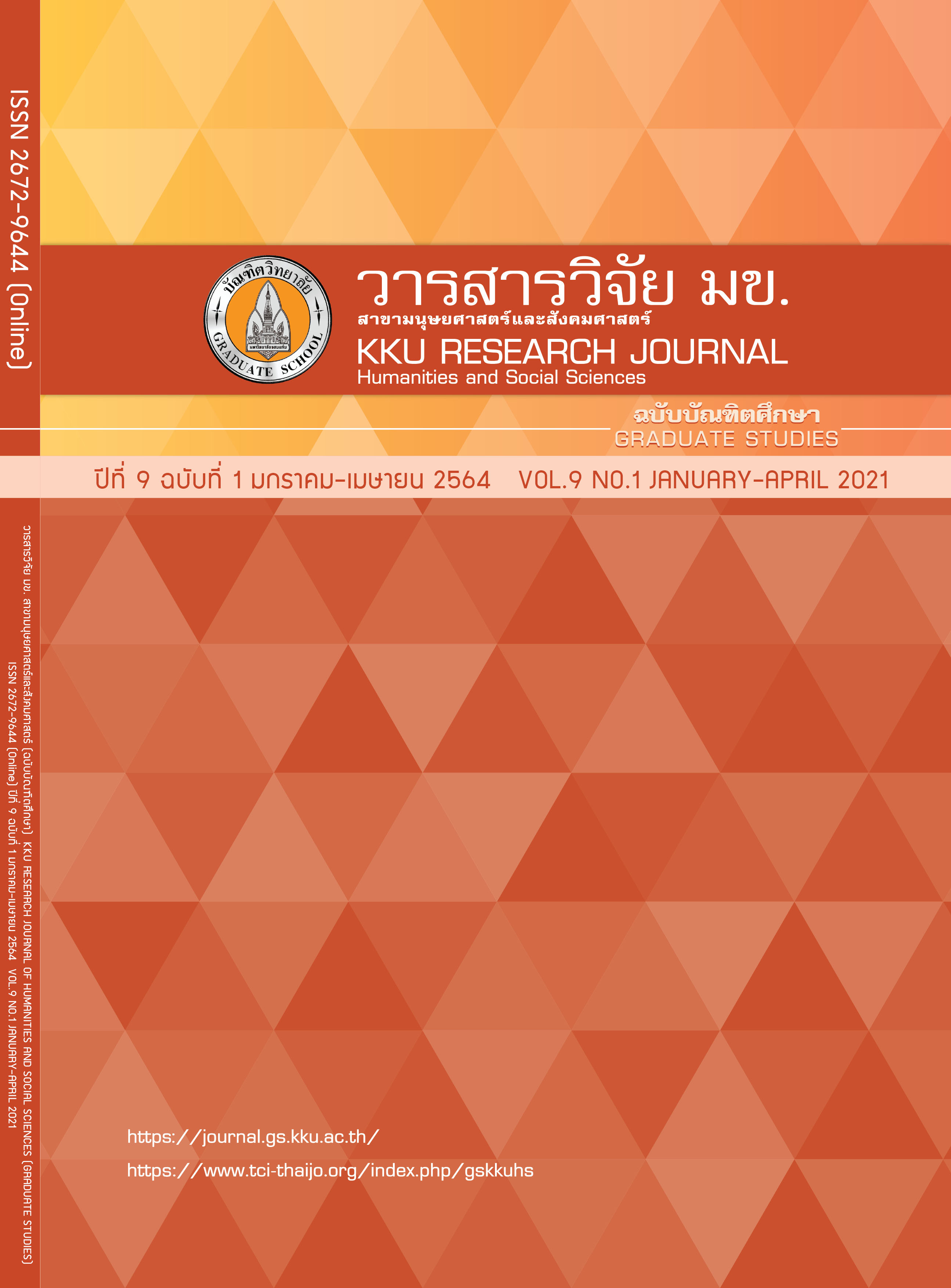ดนตรีและสุขภาวะทางใจของผู้สูงอายุ
คำสำคัญ:
ดนตรี, สุขภาวะทางใจ, ผู้สูงอายุบทคัดย่อ
งานวิจัยนี้มีวัตถุประสงค์เพื่อศึกษาเอกสารและงานวิจัยเชิงประจักษ์ที่เกี่ยวข้องในเรื่องบทบาทของดนตรีและสุขภาวะทางใจของผู้สูงอายุด้วยวิธีการทบทวนวรรณกรรมอย่างเป็นระบบ ผลการศึกษาพบว่าในช่วง 20 ปีที่ผ่านมามีงานวิจัยเชิงประจักษ์ที่ผ่านเกณฑ์การคัดเลือก 23 เรื่อง (จากทั้งหมด 1,478 เรื่อง) เป็นการศึกษาทั้งเชิงคุณภาพและปริมาณ โดยงานวิจัยทั้งหมดแบ่งออกเป็น 2 กลุ่มการวิจัย ที่ศึกษาบทบาทของดนตรีต่อสุขภาวะทางใจของผู้สูงอายุ ในส่วนของบทบาทของดนตรี งานวิจัยระบุว่า กิจกรรมดนตรีช่วยให้ผู้สูงอายุมีจุดมุ่งหมายในชีวิต รู้สึกมีอิสระ และพึ่งพาตนเองได้ รวมถึงมีความสัมพันธ์ทางสังคมที่มั่นคง และยังเพิ่มพูนความสุขทางใจ อารมณ์ สภาพร่างกาย และพัฒนาการทำงานของสมองได้อีกด้วย นอกจากนี้ยังพบความหมายของกิจกรรมดนตรีในด้านการรับรู้อัตลักษณ์ สุนทรียภาพทางดนตรี ผ่อนคลายความเหนื่อยล้าในชีวิตประจำวัน และเป็นแรงกระตุ้นในการทำกิจกรรมต่าง ๆ ของผู้สูงอายุ อันจะช่วยให้ผู้สูงอายุมีสุขภาพกาย สุขภาพใจที่สมบูรณ์ สามารถดำเนินชีวิตอย่างที่เคยเป็นมาและมีความสุข ตรงตามลักษณะการเป็นผู้สูงอายุที่มีสุขภาวะทางใจ
เอกสารอ้างอิง
Saengthong J. Aging Society (Complete Aged): The elderly condition of good quality. Rusamilae Journal. 2017; 38(1): 6-28. Thai.
Foundation of Thai Gerontology Research and Development Institute. Situation of the Thai Elderly 2015. Bangkok: Amarin Printing and Publishing Public Company; 2016. Thai.
Wongsawad S, Yoelao D, Peungposop N. Development of Mental Health Promotion Model for Aging Population at Risk by Community Health Care Team. The Southearn College Network Journal of Nursing and Public Health. 2019; 6(2): 229-243. Thai.
World Health Organization. Promoting mental health: Concepts, emerging evidence, practice: Summary report. [n.p.]; 2019.
Ryff CD. Happiness is everything, or Is It? Explorations on the meaning of psychological well-being. Journal of Personality and Social Psychology. 1989; 57: 1069-1081.
Laukka P. Uses of music and psychological well-being among the elderly. Journal of Happiness Studies. 2007; 8(2): 215-241.
Coffman DD, Adamek MS. The contributions of wind band participation to quality of life of senior adults. Music Therapy Perspectives. 1999; 17(1): 27-31.
Solé C, Mercadal-Brotons M, Gallego S, Riera M. Contributions of music to aging adults' quality of life. Journal of Music Therapy. 2010; 47(3): 264-281.
Lally E. The power to heal us with a smile and a song: Senior well-being, music-based participatory arts and the value of qualitative evidence. Journal of Arts & Communities. 2009; 1(1): 25-44.
Creech A, Hallam S, McQueen H, Varvarigou M. The power of music in the lives of older adults. Research Studies in Music Education. 2013; 35(1): 87-102.
Creech A, Hallam S, Varvarigou M, Gaunt H, McQueen H, Pincas A. The role of musical possible selves in supporting subjective well-being in later life. Music Education Research. 2014; 16(1): 32-49.
Creech A, Hallam S, Varvargou M, McQueen H, Gaunt H. Active music making: a route to enhanced subjective well-being among older people. Perspectives in Public Health. 2013; 133(1): 36-43.
Hallam S, Creech A. Can active music making promote health and well-being in older citizens? Findings of the music for life project. London Journal of Primary Care. 2016; 8(2): 21-25.
Varvarigou M, Hallam S, Creech A, McQueen H. Different ways of experiencing music-making in later life: Creative music sessions for older learners in East London. Research Studies in Music Education. 2013; 35(1): 103-118.
Hay T. Well-being in later life through music. Australasian Journal on Ageing. 2005; 24(1): 28-32.
Hay T. Facilitating well-being through music for older people with special needs. Home Health Care Services Quarterly. 2006; 25(3-4): 55-73.
Hay T, Minichiello V. Older people's experience of spirituality through music. Journal of Religion, Spirituality & Aging. 2005; 18(1): 83-96.
Hay T, Minichiello V. The contribution of music to quality of life in older people: An Australian qualitative study. Ageing & Society. 2005; 25(2): 261-278.
Hay T, Minichiello V. The meaning of music in the lives of older people: A qualitative study. Psychology of Music. 2005; 33(4): 437-451.
Chan MF, Chan EA, Mok E, Kwan Tse FY. Effect of music on depression levels and physiological responses in community-based older adults. International Journal of Mental Health Nursing. 2009; 18(4): 285-294.
Irish M, Cunningham CJ, Walsh JB, Coakley D, Lawlor BA, Robertson IH, Coen RF. Investigating the enhancing effect of music on autobiographical memory in mild Alzheimer’s disease. Dementia and Geriatric Cognitive Disorders. 2006; 22(1): 108-120.




